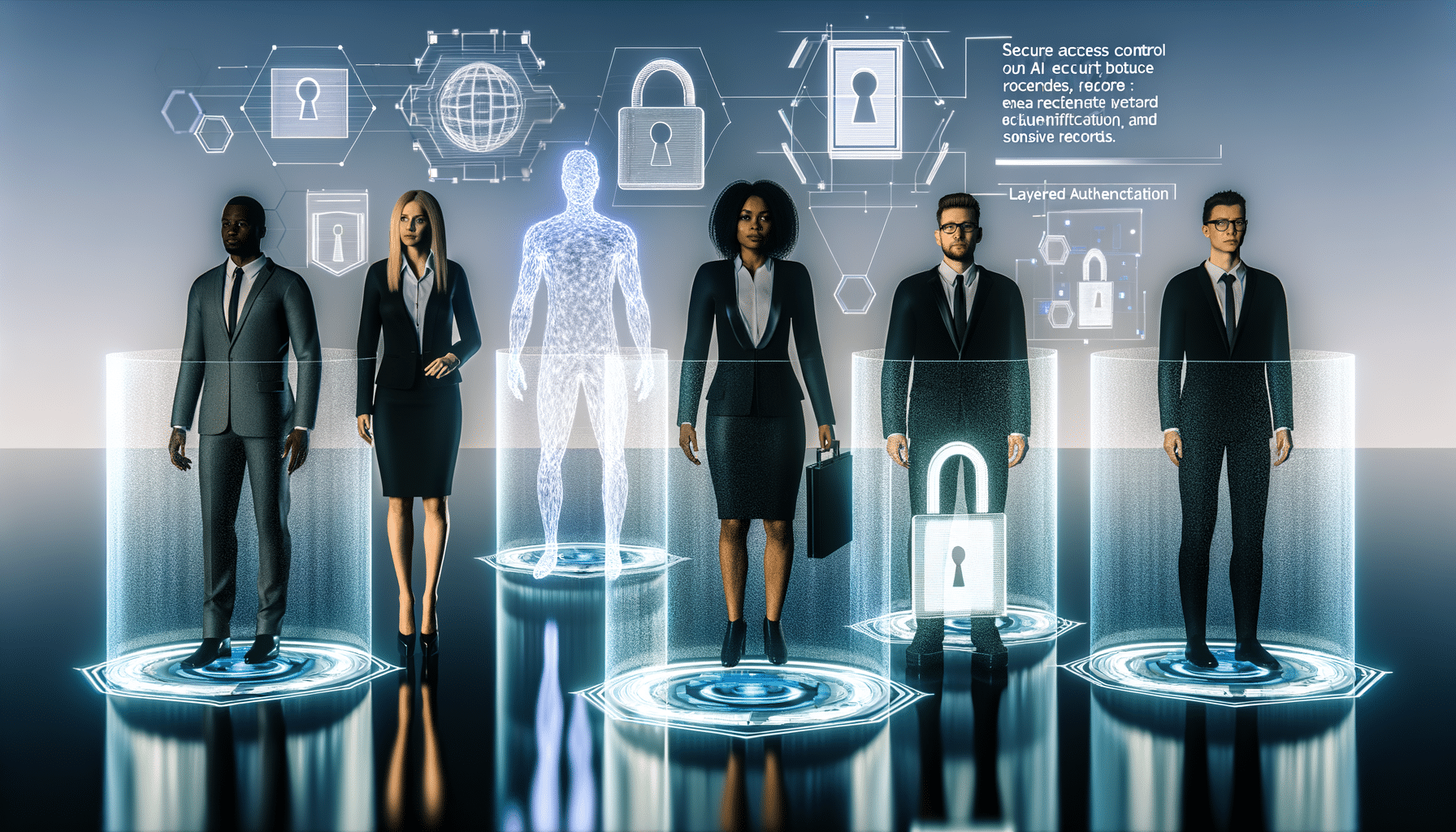Redefining the Security of Sensitive Records with AI
In an age where data breaches loom large, businesses and individuals are more concerned than ever about securing sensitive records. The integration of Artificial Intelligence (AI) in enhancing access control mechanisms offers a revolutionary solution for record security. As we delve into this transformative trend, we explore how AI is setting new standards for safe and secure access control.
Understanding the Current Security Landscape
Secure access control is a cornerstone of robust data security. Traditional methods such as passwords and keycards have long been used to restrict access to sensitive records. However, these approaches often fall short in preventing advanced threats. Hackers have gotten adept at employing sophisticated techniques that exploit the vulnerabilities of such basic security measures. Herein lies the significance of AI, offering a more resilient defense.
AI’s Role in Enhancing Access Control
AI enhances multi-layer authentication systems, thereby boosting the security of sensitive records. By leveraging advanced learning algorithms, AI systems can process vast amounts of data, identifying patterns and anomalies that may indicate potential breaches.
1. Intelligent Authentication: AI-driven tools introduce biometric authentication, such as fingerprint and facial recognition, making unauthorized access nearly impossible. These tools are becoming smarter by the day, learning continuously to outsmart potential threats and refine security protocols.
2. Behavioural Analysis: One striking feature of AI is its ability to establish behavioral baselines. By analyzing user behavior and access patterns, AI can identify unusual activity and alert security personnel before a breach occurs. This proactive measure reduces the incidence of unauthorized access dramatically.
3. Real-time Monitoring: AI systems provide real-time monitoring and alerts. Rather than relying on stale data, these systems operate in the present, offering instant feedback and corrective measures to safeguard sensitive records.
Securing Records with AI: The Part Blockchain Plays
While AI plays a crucial role, coupling it with Blockchain technology elevates records’ security to unprecedented heights. Blockchain’s immutable ledger ensures the tamper-proof nature of data, maintaining an indelible record of every access attempt. Together, AI and Blockchain create an anti-fraud environment that is continuously monitored for integrity.
Blending these technologies ensures no single point of failure exists. Even if a hacker were to breach one layer, they would find themselves locked out of the subsequent layers, creating a more comprehensive defense mechanism.
Legal and Compliance Benefits
Beyond securing data, the application of AI in access control aids compliance efforts:
1. Automated Compliance: Organizations no longer have to struggle to ensure compliance with stringent regulatory frameworks like GDPR, HIPAA, and SOX. AI systems automate compliance checks and updates, keeping record management practices within legal bounds.
2. Detailed Audit Trails: AI aids in maintaining comprehensive audit logs, providing organizations a clear, compliant view of ‘who’ accessed ‘what’ and ‘when’. These detailed trails are invaluable for regulatory audits and organizational transparency.
The Future Outlook: AI’s Expanding Role
AI continues to push boundaries, and its applications in access control are limited only by our imagination. In the coming years, as AI algorithms become even more refined, we can expect several future-forward enhancements:
1. Contextual Security: AI could incorporate situational context, such as detecting unusual locations or devices from which records are accessed, to further strengthen access control.
2. Autonomous Decision-Making: Future AI systems might self-evolve, making independent decisions to block or allow access based on constantly learned data sets and emerging threats.
The convergence of AI with other disruptive technologies ensures that sensitive records remain protected. By eliminating the frailties associated with traditional access control, AI can provide peace of mind to businesses and individuals alike.
Incorporating AI into record security strategies signifies not just an evolution but a revolution. It’s a bold statement of trust and vigilance in a rapidly changing threat landscape.
Conclusion
In sum, AI doesn’t just enhance today’s access control systems; it propels them into a future where record security is proactive rather than reactive. Taking the reins in smartly managing access to sensitive records, AI establishes itself as an integral and indispensable pillar of modern data protection strategies.
I invite you to explore more about enhancing your record security with cutting-edge technologies like AI and Blockchain. Follow along as I delve deeper into AI’s transformative roles across various sectors. Together, let’s pave a future where data breaches become a thing of the past.
